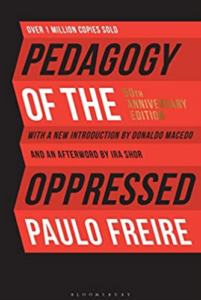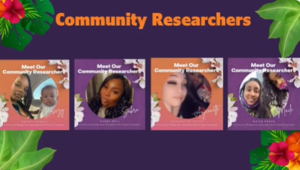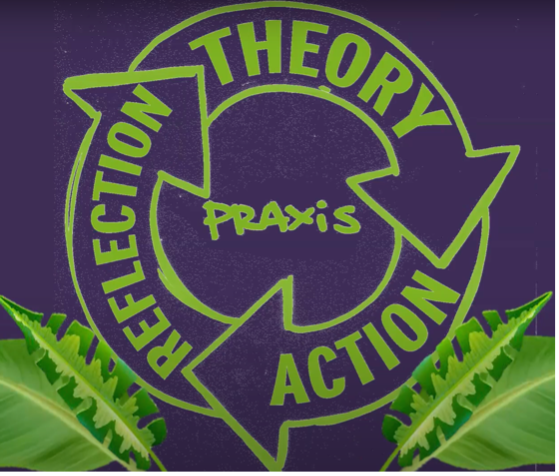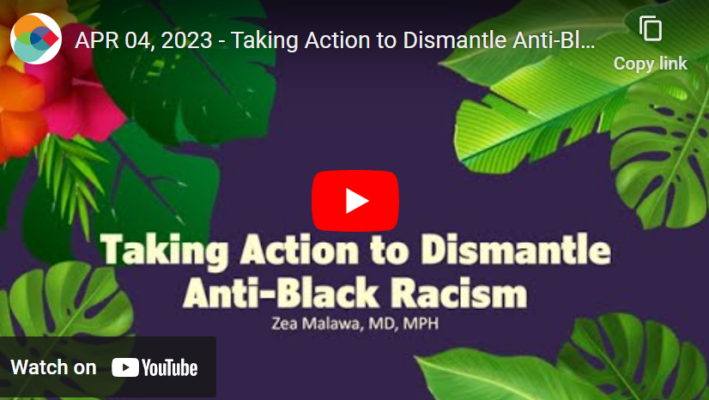Nearly a decade after she began practicing medicine, San Francisco pediatrician Zea Malawa recalled, “I started to feel really heartbroken because it was clear that what I could bring to my patients in the clinical setting was not getting at the problem that was ailing them.”

Zea Malawa, MD, MPH
Many of the Black and Brown families she worked with, she wrote in the Stanford Social Innovation Review, were experiencing discrimination, police violence and other social and health consequences of racism, problems in which vaccines and advice on kids’ car seats had no impact. She quit her practice, got a masters in public health, and returned to health care to focus on systems change and to partner on what needed to be done with the top experts — families in the community who experienced bias and discrimination on a daily basis.
Malawa, MD, MPH, is a mother, pediatrician and public health professional whose work focuses on improving health outcomes for children of color. After completing her undergraduate degree at Columbia University, she earned a medical doctorate from UCLA and a master’s degree in public health from UC Berkeley. Currently, Dr. Malawa is the director of Expecting Justice, a Black-led public health collaborative that uses systems change and justice-oriented approaches to close the racial gap in birth outcomes. As part of her work there, she oversees the Abundant Birth Project, the first guaranteed income program for pregnancy in the US.
Malawa is also the perinatal equity medical director at the San Francisco Department of Public Health and adjunct faculty at UCSF School of Medicine. In addition, she sees patients at Zuckerberg San Francisco General Hospital (ZSFG) and serves as the vice chair of San Francisco’s First 5 Commission. As part of its trauma-informed approach to equitable health care, the Resilient Beginnings Network is delighted to share her recent, deeply inspiring ZSFG Pediatric Grand Rounds, “Taking Action to Dismantle Anti-Black Racism.”
JUMP TO:
03:52 — Reflecting on History
In discussing equity, Dr. Malawa cited the iconic Brazilian educator Paulo Freire and his book Pedagogy of the Oppressed. One of Freire’s most important ideas about liberation, she said, was praxis, which means unifying action with reflection. Action without reflection doesn’t yield the impact people hope for, she said, nor does reflection without action. Praxis, she said, results in impact by integrating those elements — and a crucial place to start is by reflecting on history.

“Most of us have been taught history in a very limited and biased way, and as a result, it can be confusing to understand some of the racialized dynamics that we see in present day,” said Malawa. During the two and a half centuries that slavery existed in this country, she said, “about 17.5 trillion worth of wealth was extracted from the black population through the form of chattel slavery. So although a lot of people might think, well, slavery happened a long time ago, so it probably shouldn’t have very much bearing on today’s world, it’s important to recognize that the economic advantages that we enjoy in this country came came at a price — a price we still haven’t repaid. And the price wasn’t just economic — it was also the dehumanization of Black people…It’s really important to recognize how the ideologies formed during slavery times continue to impact our thinking in this country in the present day.”
24:40 — Theory: Racism as a Root Cause Approach (RRC)
Discussing the high cost of living in San Francisco, Malawa noted that in the city, 48% of Black children live below the 100% federal poverty line, compared to only 2% of white children in the city. A 2018 survey found that nearly a quarter of the Black pregnant people in the city didn’t have a place to sleep during their pregnancy, compared to just under 3% of the city average. She also compared a redlining map of San Francisco with the city’s preterm birth map, which revealed they were very similar “because the ramifications of that [redlining] policy continue to touch us today. So I hope I made the case that we have some work to do, even in a city as progressive as San Francisco.”

To help people dismantle systemic racism, Malawa developed a theory called “racism as a root cause” (RRC), with four criteria to put in place for any intervention. For health care workers to be anti-racist, she said, “the first criteria is that our interventions need to be long-term. Racism has been around four hundred years, so it’s silly to think that an intervention that is gonna last for maybe a few months or even a few years is going have a significant impact.”
The other three criteria are to be precise and tailor the intervention to the racially marginalized group at hand (with the expert guidance of community members); to work on system change by making patients’ environments less racist rather than pushing patients to become more resilient in a racist environment; and to promote reparations — not only economic reparations, but the sharing of resources, opportunities and power. “Be constantly trying to think about ‘how do I shift those onto the community in which I’m trying to address racism.” Malawa says. (Find out more of her in-depth advice and strategies in the video ).
33:45 — Action: What does this look like in practice?

As one example, Malawa described the launch of the Abundant Birth Project, a guaranteed income program that provides a monthly stipend of a thousand dollars during pregnancy and is the first of its kind in the United States. It was piloted with 151 Black and Pacific Islander pregnant people in San Francisco because those are the two groups in the city that are most likely to have adverse birth outcomes. “So our very first step when we got our first grant was to hire four mamas who identify as either black and or Pacific Islander and are interested in birth work,” said Malawa. “We trained them in qualitative methods, and they in turn went out and did a couple of dozen qualitative interviews with other Black and Pacific Island mamas to find out what people would want to see from a guaranteed income program for pregnant people.” They publicized the community researchers on Instagram flyers “so that people would know who they’d be talking to if they opted into our research, and we think it made a huge difference.” Although the Abundant Birth Project research was completely voluntary, it had an opt-in rate of 80%. Afterwards the team collectively analyzed the data, using human-centered design and usability testing. Its members went on build a community governance council, of which half consists of black and/ or Pacific Islander mothers from San Francisco, whose votes are given more weight in decisions affecting the community. “So is it long-term?” Malawa asks. “We’re hoping so,” she said with a laugh, “and we’re working really hard to get there.”
Resource
📝 Racism as a Root Cause Approach – Disparities Intervention worksheet [.pdf]
Find this useful or interesting? We’re constantly sharing stuff like this. Sign up to receive our newsletter to stay in the loop.

